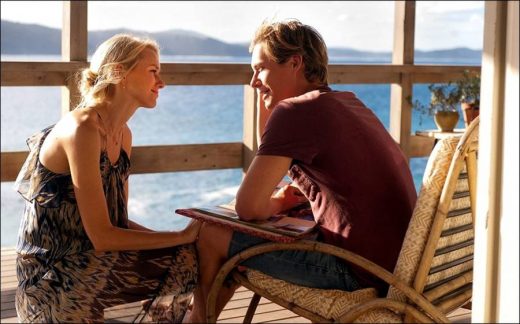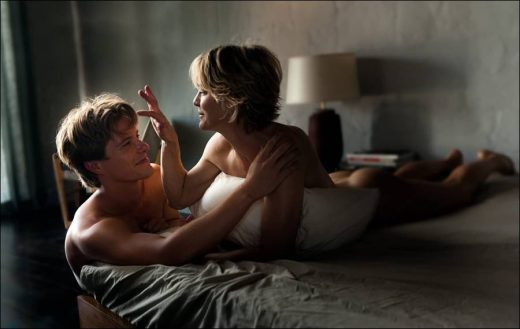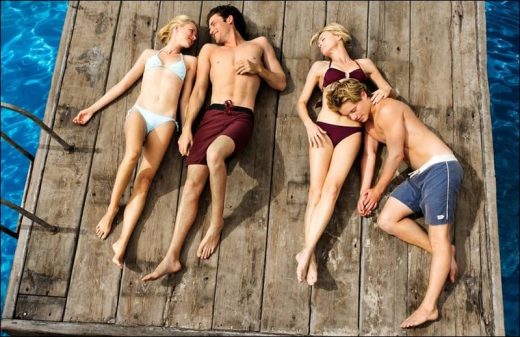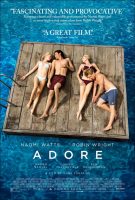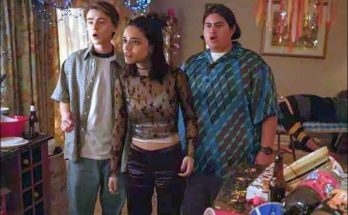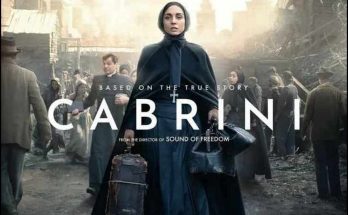Adore, directed by Anne Fontaine, was adapted from Doris Lessing’s short novel “Grandmothers.” The film was also a movie that could not attract the audience with the ambivalent approach to the movie theaters. The IMDB note is also not dazzling. It is natural that it looks like an unwanted movie to watch in this state.
That’s not all about the film’s downsides or confusion. It was a movie that could not be decided on its name. The director and maybe the producers used the names “two mothers” and then “perfect mothers”, and even they were shown as “Two Mothers” at the Sundance film festival. But then Adore entered the vision with his name. Adore, both to be worshiped; it contains meanings such as passion, passionate love. There are two “love”, not one, and the problem is related to whether these love is forbidden.
When you see the name of Naomi Watts or learn that Lessing is adapted from her novel, you can understand why the majority of critics choose to stay away from the movie, rather than encountering a movie with a solid direction and acting. He thinks that the film tries to keep himself away from the film by ignoring and disliking the film, which almost legitimizes the love, passion and sexuality that the film shows with such an extraordinary clarity.
Is it forbidden for a young man to make love to a woman who is the mother of her, especially when she is her best friend? Moreover, is it strange or perverted that the woman whose own mother sleeps with, the son of the woman, the other young man who is the closest friend, finds it natural to lie down? Moreover, what can be said in the face of the fact that these lovings continued not as a future but as a long-term relationship?
The mother lying with the young man she could be her mother! The mother, who agreed to sleep with her son’s closest female friend, does the same thing! From this sentence, it is difficult to cope with the feeling of anxiety, which suppresses the concepts of incest taboo, heresy, pornography, and immorality. a relationship that evokes this situation is quite common in Turkey, contrary to popular belief in repair and exposed to psychological trauma causing very difficult mAlArA understandable exposed to accusations that naturalize. So are we theoretically confronted with an incest? Where does incest begin?
It’s a difficult and easy question. The easy answer is the ban on sexual intercourse among those with blood ties. The hard part is the degree of blood bond. Kuzenlerara which is very common in Turkey is regarded as incestuous marriage in European and North American culture. Love or passionate sexuality in the movie (are these two different things?) Is not actually an incestive relationship. There is not even the slightest bloodline among those who are together.
The film tells about a relationship between two women of the same age with each other’s sons and which they could not get out of living. The chanting with the idea for the film in Turkey in response to the incest complex and impossible to explain but it has a moral hypocrite. But what about the rejection in Europe and the USA? It is not conceivable to think that there are only aesthetic problems behind the fact that there are negative results.
Adore seems to have bothered most people due to a world image dominated by women. As if the two women who carried the legacy of the Cybele of the ancient times made both men and women of our time uneasy. From the first scene to the last scene, the movie builds a world under the rule of two women and the ocean. I mean, we are watching a world where two women and the ocean in the lead roles are not secondary, and everyone and everything is subject to them. The same theme is dominant in Lessing’s “novella”. A reference to this mother goddess myth is possible when Lessing chooses ‘grandmothers’ as the name.
The novel and film takes place on a beach in the extraordinarily beautiful, paradise south of Australia. The movie begins with the joy of reaching the sea of two healthy blonde girls running in an immense, but joyful ocean running in a lush forest, running as calm as an aquarium. They throw their tops on the beach and dive into the sea. The camera shows both the bottom and the top of the water.
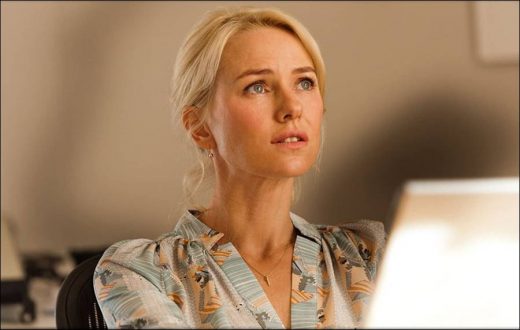
It’s like the source of life, not the ocean, like the liquid in the womb. Throughout the movie, the ocean, uterus matching is constantly repeated. It is understood from the first scene that these two girls, who are still on the verge of adolescence, are not indifferent to the forbidden. When they climb to a fixed island that looks like a shelter, a micro island on the ocean, they warm up with a drink from their stashes.
On the face of the two girls who are lovingly connected to each other in the same scene, the camera captures Lil’s (Naomi Watts) adulthood and Roz (Robin Wright). They are at the funeral of Lil’s husband. We meet their son, Ian and Tom, who are both 12-13 years old at the time and seemed to be very good friends, just like their mother. The biggest supporters of Ian, who lost his father, are Roz and his son Tom.
This time, these two boys go to the same beach to swim in the same way. Then the film makes another time jump. Ian and Tom emerge as two handsome boys in their twenties. With the friendship of Lil and Roz, we realize that life continues, and that Ian and Tom’s friendship continues between them as a happy foursome even Roz’s wife and Tom’s father, Harold, could not enter. Everything seems to flow in an extraordinary calm and mediocrity. Both families are lucky; A healthy, carefree life with education, career, intertwined with art, sports continues.
One day, Harold tells Roz that he has received and accepted a good job offer at a university in another city. As he says, he seems to be sure that they will move together. They are so married, it is easy to decide for this job, which means an opportunity for promotion for a man / husband and a better university education for a man / son. However, when Roz tells Harold that he should have applied for the job to be offered to him and that he did not apply to him without asking him, the decision would not be so easy. But from the next developments, we understand why Harold applied for a job without asking his wife.
Harold accuses his wife of not wanting to come because she doesn’t want to leave Lil. It is seen that even in that scene, he never felt that Harold could not be involved in the relationship between his wife and Lil during marriage, and that Roz was more important than Lil in his eyes. Harold does not seem to have spoken of the application to Roz for rejecting it; perhaps he made the application to escape from this relationship, which Roz could not be involved in, knowing that he would refuse to come in. Then Harold goes. Already later remarry and become friends with Roz.
Life has become more comfortable for two women and their sons. One day, while sitting on the terrace, the eyes of their son, who came from the surf, are caught in admiration. They are like young gods, did we do them? They ask each other with disbelief. The expression ‘did we do it’ is so possessive that the fathers / men were used only as a breeder and were sent as well. In the continuation of the stage, the young bodies of the young men attract women / mothers to their youth. They look at photos of youth on the couch they sit together. Sons make fun of these situations.
Then at dinner, Roz sees a vague man in Lil’s son Ian’s glance. Even if he misses his eyes, he seems to be affected. For boys, two houses are like one house. They often fall asleep in the same house. One night Roz can’t hold herself when she gets up to drink water and goes to the room where Ian sleeps and watches her half naked body. Ian is awake, a short conversation passes between them. Lessing writes in this novel that Roz is looking at his room by hearing that Ian is crying.
One night, Ian comes to Roz’s bed, hugs him from behind, Roz agrees. Turning to drink water in the morning, Tom witnesses his mother’s exit from half-naked Ian’s room. He doesn’t know what to do; runs to the ocean. Then he goes to Lil and tells the situation and wants to do the same. Although Lil will say no for a short moment, he agrees.
The two men never talk about this between them. The two women are a little confused, but Lil tells Roz that she has never been so happy in her life. Then a relationship begins, which is regarded as the peaceful lives of two women and their sons, who have been good friends since childhood. The sons leave their mothers to each other at night and go to their women.
Throughout the movie, women always live in their own homes. The main thing is them. Nobody in town is aware of this situation. Nobody can think of mothers sleeping with each other’s sons. Conversely, gossip is that there is a lesbian draw between Lil and Roz. The two women are not bothered to be called like this. Even Harold, who occasionally returns home, does not have the slightest suspicion of this form of relationship.
Life goes on like this. As the boys mature, life begins to force. Tom cannot refuse when he gets a major opportunity for his theatrical career. Anyway, Tom’s being with Lil started as a reaction to his mother’s being with Ian. It is as if Ian, who started this quartet, was in Roz and immediately accepted by Roz. It’s as if Lil and Tom started with no such desire in their minds and hearts, and seemed to keep up with the other two.
However, the process does not work like that. While Tom is with his father, he starts to miss Lil more. He doesn’t even see Mary at the beginning, standing right next to her and dying to be with her. So much so that Mary starts to think she might be gay. This implication pushes Tom to Mary and a relationship begins. On the other hand, Lil misses Tom very much, but nothing can happen, and his son Ian goes to Roz’s bed at night, and he is left alone.
Tom returns one day and lives their four lives as if nothing had happened. Until Harold came to visit until he brought Mary with a surprise. Things develop and Tom and Mary decide to get married. This marriage appears to Roz as an opportunity to end his relationship with Ian and grow the young gods they made men into the world. Lil agrees. But Ian, who started everything, does not want to accept this decision. He has an accident on the surfboard, where he gets out of anger. It is a heavy accident and ends with her acceptance of marrying Hannah, whom she met during the long physical therapy process.
Everything seems to be in order. There will be another leap of time. Children, grandmothers and married youth have become eight of the young couples. Grandmothers own grandchildren, mothers are not happy with this, but they have no words to say. Then one night Ian witnesses that the relationship between Tom and Lil never actually ends.
Despite all those marriages, children, promises, Lil and Tom continued their relationship. It is not that that Tom and Lil are not lying down and maintaining their relationship by lying, which caused Ian to be outraged and to tell everything besides other women, that he was deprived of Roz during this time. Two young women cannot believe what they hear, but the truth is obvious. They run away. The movie ends with the happy and peaceful lying down side by side on that small island where mothers and sons swim.
Is it the effect of growing fatherless, pushing Ian to Roz’s bed, instead of the father he could not compete with, the oedipal complex that he tried to complete and overcome by repeating the father of someone else, his best friend, by taking his woman? Did Tom take the other mother and have a similar, mother of her mother, by her reaction to the acquisition of her mother, who is the target of her oedipal desire, just by her, Ian?
Or are the Attis and Cybele women embracing, growing and masculine the two young gods. Is it Ian’s view of Roz who started it all, or Roz’s desire for the man that Ian sees? Why would Lil agree to be with Saul when he turns around and finally gives up and thinks that he is a lesbian or with many other men? So much so that the first step is from Tom and, moreover, a reaction step, how does that relationship last longer than that of Roz and Ian, even after he gets married and Tom becomes a father?
Why is love and sexuality not disturbing when men are old and women are young but vice versa? Is the energy of a man in his twenties with the sexual maturity of a woman in her forties more appropriate and compatible for sexual love? Who knows, perhaps, the cultural acceptance of the old woman being younger by the man is about sexuality squeezing into the fertility / fertility axis? It may also be for the same reason that a woman is older than a man directly associated with motherhood.
If the name (Adore) decided at the end of the movie meant worship and passionate love, perhaps two women unconsciously felt that they were the main goddesses as they compared the young men to the ‘young’ gods. Were the Attis, who danced for Kibele and presented their masculinity to the mother goddess, did they look like the youth of July Ian and Tom?
Throughout the movie, the actress’s plain, astonishing acting, the steady flow of the subject, and the tension of the events seem to tell us something about the unusual calm acceptance of the two women. Women find their experiences so natural and natural that they are accepting, as if a kind is not passing by themselves, they are watching it, or everything that goes on in the ordinary course of everyday life. Emotional storms are experienced by two boys and then their young women. The movie / life is flowing under the endlessly accepting domination of Lil and Roz and the ocean. Everything except three, everyone is subject to them and they can act on their tracks.
The fact that the film is met with a general rejection, ignoring it seems to be related to the comfort of the two women, not to hurt each other at all, not to give up each other even though they lie to each other and to choose life that is compatible with their nature. Nobody can resist seeing Cybele in our time.
Adore (2013)
Directed by: Anne Fontaine
Starring: Naomi Watts, Robin Wright, Xavier Samuel, Ben Mendelsohn, Sophie Lowe, Alyson Standen, Skye Sutherland, Sarah Henderson, Isaac Cocking, Alice Roberts, Charlee Thomas
Screenplay by: Doris Lessing, Christopher Hampton, Anne Fontaine
Production Design by: Annie Beauchamp, Steven Jones-Evans
Cinematography by: Christophe Beaucarne
Film Editing by: Luc Barnier, Ceinwen Berry
Costume Design by: Joanna Mae Park
Set Decoration by: Sara Mathers
Music by: Christopher Gordon
MPAA Rating: R for sexual content and language.
Studio: Exclusive Media
Release Date: September 6, 2013
Visits: 170
